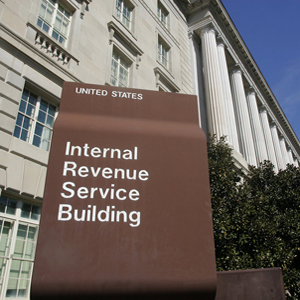Marc Stephens Wins Case Proving Citizens Do Not Have to Pay Income Taxes

Today, Marc Stephens posted a video on his website located at www.marcastephens.com showing evidence that he challenged the State of California Franchise Tax Board, Los Angeles County Recorders, Alameda County Recorders, and all three credit reporting agencies which includes, Transunion, Experian, and Equifax stating that according to the United States Constitution he is not obligated to pay taxes. Marc won the case, and all three credit bureaus were obligated to remove the information from his credit report.
On July 15, 2016, Marc Stephens sent a ‘notice of intent to sue’ to the State of California Franchise Tax Board, Los Angeles County Recorders, Alameda County Recorders, and all three credit reporting agencies.
“I explained that your reporting is inaccurate and gives a false impression that I owe $8,843 in income taxes”, says Marc Stephens.
“Your reporting is a clear violation of the Federal Credit Reporting Act 15 USC 1681s-2 section 623”, says Marc.
Marc’s letter proves multiple interesting facts about not only taxes, but the responsibility of the credit bureaus when they report inaccurate information.
Marc used the Federal Credit Reporting Act, and defamation laws to prove that the credit bureaus are liable for damages if they report inaccurate information.
Marc’s argument is that the credit bureaus are defaming him by stating on his credit report that he owe’s $8,843 in income taxes.
Marc then presented rulings from the Supreme Court of the United States revealing that he does not have to pay taxes because the ‘right to earn a living is a fundamental right’ under the Constitutions of the State of New Jersey, California, and the United States.
Marc’s letter reads as follow: “Experian is obligated to report accurate information according to FCRA, and under California and New Jersey’s defamation laws. “Where the person defamed is a private party and the statement involves a private matter, the fault element is satisfied by showing that the person communicated the false statement while acting negligently in failing to ascertain the truth or falsity of the statement before communicating it.” Feggans v. Billington, 677 A.2d 771, 775 (N.J. Super. Ct. App. Div. 1996). If the furnisher of the information is providing Experian with false and inaccurate information, and Experian is disseminating the unprivileged publication of the false and inaccurate statements to multiple third party vendors, then Experian is also liable for damages according to FCRA, Cal. Civ. Code §§ 44, 45a, and 46, and under New Jersey’s Defamation laws, see DeAngelis v. Hill, 847 A.2d 1261, 1267-68 (N.J. 2004)”.
“Both accounts claim that I owe an income tax, which is incorrect. Under the United States Constitution, California and New Jersey’s Constitution, I have a “Fundamental Right to Work”, and according to the United States Supreme Court, I am not obligated to pay income taxes. “The United States Supreme court stated in Truax v. Raich, 239 U.S. 33, 41, 36 S.Ct. 7 (1915): “It requires no argument to show that the right to work for a living in the common occupations of the community is of the very essence of the personal freedom and opportunity that it was the purpose of the Amendment to secure. Butchers' Union Co. v. Crescent City Co., 111 U. S. 746, 111 U. S. 762; Barbier v. Connolly, 113 U. S. 27, 113 U. S. 31; Yick Wo v. Hopkins, supra; Allgeyer v. Louisiana, 165 U. S. 578, 165 U. S. 589, 165 U. S. 590; Coppage v. Kansas, 236 U. S. 1, 236 U. S. 14”.
“California courts acknowledge The United State Supreme court ruling in Truax v. Raich. Sail'er Inn, Inc. v. Kirby, 5 Cal.3d 1, 17, 485 P.2d 529 (1971): "The right to work and the concomitant opportunity to achieve economic security and stability are essential to the pursuit of life, liberty and happiness. As early as 1915, the United States Supreme Court declared that `the right to work for a living in the common occupations of the community is of the very essence of the personal freedom and opportunity that it was the purpose of [the Fourteenth] Amendment to secure.”
“In New Jersey, Cameron v. International, & c., Union No. 384, 118 N.J. Eq. 11, 20, 176 A. 692 (1935): The inalienable right to earn a living. This is a property right guaranteed by the fifth and fourteenth amendments of the federal constitution, and by the state constitution.” According to Lane Distributors, Inc. v. Tilton, 7 N.J. 349, 362, 81 A.2d 786 (1951): “The right of a person to engage in a business of his choice is a property right”.
“Transunion and Equifax have since deleted both accounts from my credit report because it’s a clear violation of the FCRA and the Constitutions of the United States, California, and New Jersey”, says Marc Stephens.
On July 21, 2016, which is 6 days after Marc’s letter, Experian removed the two accounts posted by the Los Angeles County Recorders, and Alameda County Recorder’s office from his credit report.
In addition, the State of California Franchise Tax Board ended up removing information from their website which explained how credit information is verified with the credit bureaus.
“State statues and codes are not the law for natural persons, only corporations”, says Marc.
Marc Stephens is also currently in the United States Court of Appeals for the 3rd Circuit regarding a $76M lawsuit which he filed against the City of Englewood, Englewood Police Department, Nina C. Remson at Law, LLC, and Comet Law Offices, LLC for false arrest and legal malpractice. read Article.
Marc also has a highly watched second amendment case that will be reviewed by the Justices of the Supreme Court of the United States on February 17, 2017. read Article.
Most shockingly, Marc Stephens has never been to law school.
Copy of Marc Stephens's credit report.
Like us on Facebook!

